Community Impact
Students with Autism Benefit from Pilot Program
 June 2018 - Harry is much shorter than his new friends at Bristol Public Schools, but his eyes light up during the introduction and he confidently greets them with a friendly, “Hello!” and a wave. He is ready to play some learning games.
June 2018 - Harry is much shorter than his new friends at Bristol Public Schools, but his eyes light up during the introduction and he confidently greets them with a friendly, “Hello!” and a wave. He is ready to play some learning games.
Harry is a product of Movia Robotics. The firm approached the school district with an innovative plan to use robots as a learning tool to teach students with autism by engaging and interacting with them in a small group setting, facilitated by a human specialist. A $2,367 grant from the Money in Motion Fund to Bristol Public Schools through the Main Street Community Foundation, in collaboration with grants from the Stocker Foundation and the Barnes Foundation, funded the $7,300 total cost of the pilot program.
A cohort of students with autism and their non-disabled peers participated in the pilot program twice a week for 30 minutes each session at Stafford and Hubbell Elementary Schools. Lessons were planned by Bristol Public Schools teachers in partnership with Movia staff, tailored to each child’s individual education plan. As the students met with Harry in small groups, they learned and practiced the social pragmatics of sustaining eye contact with the robot, engaging in reciprocal greetings and interactive communication.
Academic skills such as the recognition of sight words and phonics were also reinforced. Non-verbal students learned to select appropriate responses to Harry on their tablet devices. Verbal students demonstrated significant increases in appropriate, meaningful utterances and speech. Student engagement was sustained at a high level.
Why would the district opt to enhance teaching using a robot? Children on the autism spectrum tend to be more interested in objects than people. While the robots are animate and react similarly as a person would, they are not as confusing to the students. Children with autism often find social interaction difficult because of humans’ complex and diverse communication styles – word choices, inflection, tone of voice, body language and facial expressions can vary tremendously from person to person.
These communication nuances and unpredictability can be difficult for children with autism, often causing anxiety that can interfere with learning. Movia robots deliver lessons in a patient, consistent, non-judgmental manner. This non-threating environment encourages active participation, sustained engagement, repeated practice, healthy risk-taking, success and increased confidence in the learning process.
It is important to note that a trained professional is present to facilitate the interactions. This is a new science, and not a replacement for the teacher. Instead, it is to be utilized as an educational tool by teaching professionals.
“The Movia Robotics program is an exciting, innovative product that needs a little more time to develop. We are looking forward to future iterations of the robot and continue to collaborate, providing feedback and suggestions to product development,” said Dr. Michael Dietter, Director of Special Services at Bristol Public Schools. The Bristol Board of Education is waiting for retention data to be compiled and analyzed before any discussion can be initiated regarding implementation of the program on a larger or longer-term scale. “The ultimate goal is for the students to retain and generalize what they have learned by applying their new skills – today and months from now - to interactions with other people in their classrooms, families, and community,” stated Dr. Dietter.





